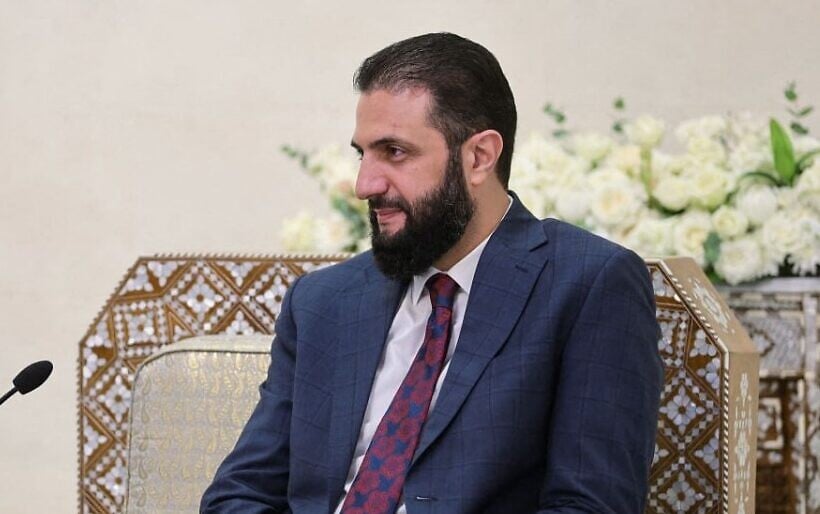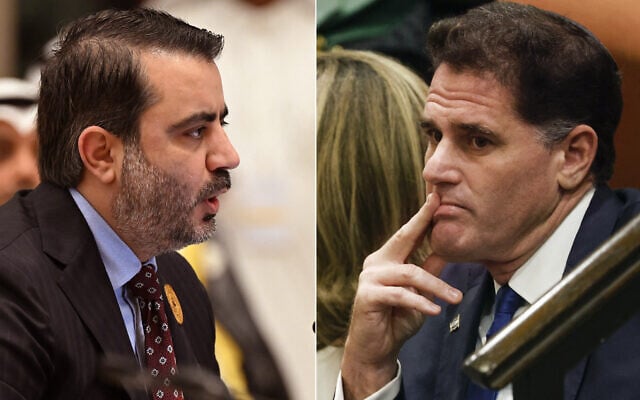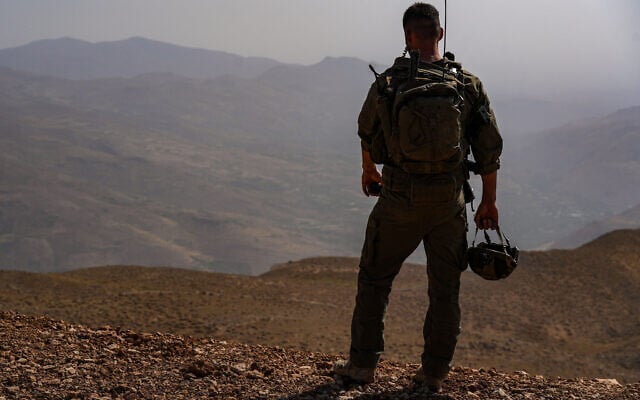


DAMASCUS, Syria — President Ahmed al-Sharaa said Friday that Syria was negotiating with Israel to reach a security agreement that would see Israel leave areas it occupied after the December overthrow of Bashar al-Assad.
As Islamist-led forces toppled Assad on December 8, Israel deployed troops to the UN-patrolled buffer zone on the Golan Heights which has separated Israeli and Syrian forces since an armistice that followed the 1973 Yom Kippur War.
Israel has also launched hundreds of airstrikes on targets in Syria and carried out incursions deeper into the south. Syria’s new authorities have not responded to the attacks.
“We are now in a state of negotiations and dialogue on the issue of a security agreement,” Sharaa said in an interview with state television channel Alekhbariah.
He said that Israel believed that Syria had “quit” the 1974 disengagement agreement after Assad’s fall, “even though Syria, from the first moment, expressed its commitment” to the accord.
“Now, negotiations are underway on a security agreement to return Israel to where it was before December 8,” Sharaa said.
Jerusalem and Damascus have no diplomatic relations, with the two countries technically at war since Syria joined other Arab countries in trying to destroy Israel in the 1948 War of Independence.
Last month, Syrian state media said Foreign Minister Asaad al-Shaibani and Israeli Strategic Affairs Minister Ron Dermer had met in Paris to discuss deescalation and the situation in Druze-majority Sweida province after deadly sectarian violence.
Also last month, Prime Minister Benjamin Netanyahu acknowledged that Israel was holding talks aimed at the demilitarization of southern Syria.
Israeli forces have been deployed to nine posts inside southern Syria since Assad’s fall, mostly within the UN-patrolled buffer zone along the border. Troops have been operating in areas up to around 15 kilometers (some nine miles) deep into Syria, aiming to capture weapons that Israel says could pose a threat to the country if they fall into the hands of “hostile forces,” as Iranian-backed groups did during Assad’s rule.
It distrusts Syria’s new government, which is led by former jihadists.
Amid the ongoing US-mediated talks, Defense Minister Israel Katz vowed late last month that IDF troops would remain in Syria to defend the north, saying Israel’s need to maintain a presence there is a “central lesson from the events of October 7.”
In the interview, Sharaa revealed that Syrian forces entered secret negotiations with key Assad ally Russia during the offensive that eventually toppled the longtime ruler.
“When we reached Hama in the battle of liberation, there were negotiations between us and Russia,” Sharaa said.
When forces arrived in Homs further south, Russia “stayed away from the battle… as part of an agreement reached between us”, he said.
Sharaa also noted how his forces avoided attacking Russia’s Hmeimim air base on Syria’s Mediterranean coast.
Russia’s naval base in Tartus and its air base at Hmeimim are Moscow’s only official military outposts outside the former Soviet Union.
Assad fled to Russia from Hmeimim.



